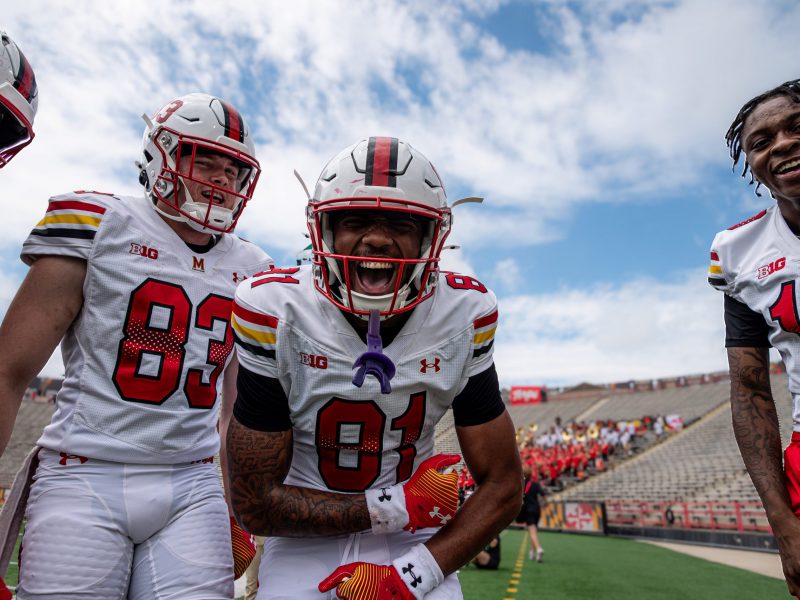
Mayor Andy Fellows (center-left) was re-elected alongside District 3 Councilwoman Stephanie Stullich (center-right) in the Nov. 5, 2013 city elections. Graduate student Matthew Popkin (left) lost in District 3.
Despite two contested districts and the first competitive mayoral race since 1989, the unofficial results for the College Park mayor and City Council election favored the incumbents.
It was a disheartening loss for District 3 candidate Matthew Popkin, a university graduate student, who lost to incumbent council members Robert Day and Stephanie Stullich.
“Certainly myself and everyone on the campaign was fairly disappointed with the results,” Popkin said.
Both Day and Stullich said Popkin’s campaign addressed a need to bridge the gap between students and permanent residents.
“Matthew showed there is very much an interest from students, and we need to take advantage of that,” Day added.
Stullich said she wants to move past what some may have seen as oppositional relationship between residents and students during this year’s campaign.
“I know I want to move beyond that,” Stullich said.
In the next two years, Stullich said she wants to continue work with the Neighborhood Stabilization and Quality of Life Committee, which was formed in September to address issues in residential areas.
“We are really looking at these issues in a much more creative and collaborative way,” she said.
Though the student candidate in District 3 lost, Day — who was supported by the Student Government Association — said students’ voices must be heard. And residents are realizing that students are trying to get involved in community issues, he said.
In the mayoral race, early unofficial results showed Mayor Andrew Fellows ahead of challenger Robert McCeney, a middle school teacher and doctoral candidate at George Washington University.
In District 1, council members Fazlul Kabir and Patrick Wojahn defeated Benjamin Mellman, a senior aerospace engineering and mechanical engineering major at this university. Unofficial results listed Kabir with 472 votes, Wojahn with 443 votes and Mellman with 125 votes.
Speaking in front of a crowd at City Hall last night, Wojahn said he was humbled to be re-elected and was excited to continue developing the city’s relationship with the university.
“There’s a lot that we can build on,” Wojahn said. Sophomore government and politics major Alexander Sharp came to City Hall to do his part as a citizen, he said after voting.
“I’d like to do as much as I can,” Sharp said. “If you’re going to complain about [politics], you might as well do something to change it.”
Sharp’s roommate, freshman computer engineering major Frank Pogoda, said this was the first election in which he was eligible to vote.
“I wanted to exercise my right as a member of the voting electorate,” Pogoda said. “I was excited to do it.”
Berwyn resident and education psychology doctoral candidate Lily Fountain said she has never missed an election. But despite attempts to keep updated with local news, Fountain said she believes the candidates failed to present clear platforms.
“I have to say that I wasn’t completely aware of their stand on some of the issues,” she said.
With so many incumbents projected to return to their seats, Fellows said there will be less of a learning curve when the new council begins sessions in January 2014. In return, the council members will be able to work efficiently on new development projects, quality of life issues and economic development around the city.
“We kind of want to accelerate what we’re doing,” Fellows said.


